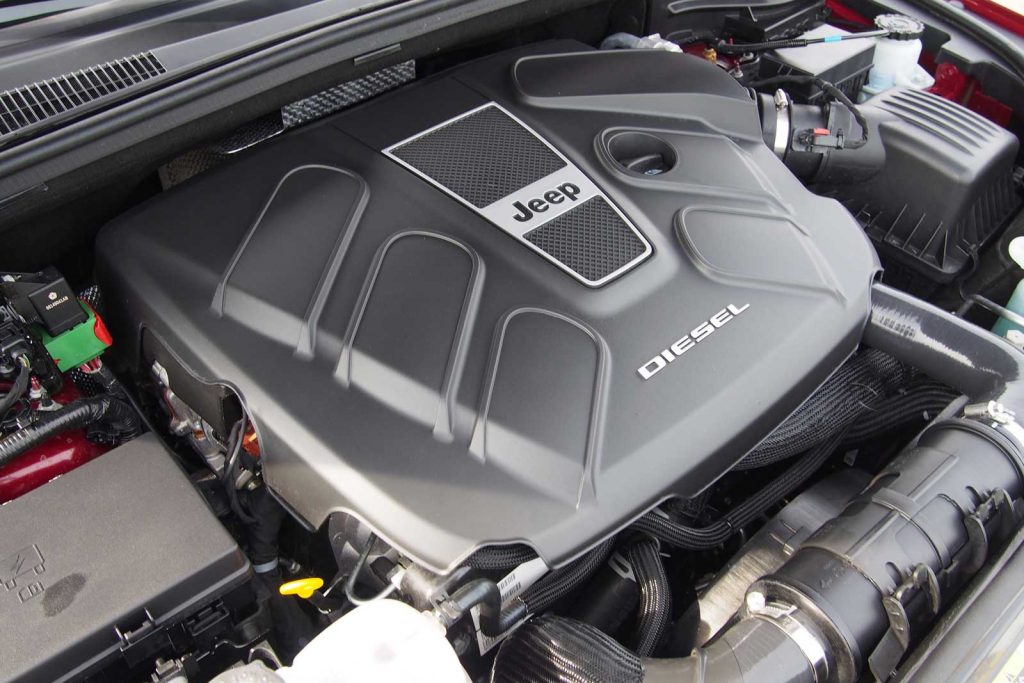Fiat Chrysler said on Friday that it would modify around 100,000 diesel vehicles to try to reach a settlement with United States regulators, as separate academic studies provided mounting evidence that the carmaker had installed software meant to evade emissions standards.
The move came a day after the company said it was in talks to resolve a Justice Department investigation. The case bears striking similarities to a Volkswagen scandal in which several executives have been investigated or charged, with the German carmaker paying tens of billions of dollars in fines, penalties and settlements.
Though Fiat Chrysler is unlikely to have to pay as much as Volkswagen, the emissions cheating, if proved, could still be expensive and badly damage the company’s reputation at a time when it is grappling with low profitability.
On Friday, Fiat Chrysler said it was going to modify Jeep Grand Cherokees and Ram 1500 diesel vehicles in the 2014 through 2016 model years with “updated emissions software calibrations.” It said it was also seeking regulatory approval for 2017 models with the same software.
The carmaker said the move was the “result of many months of close collaboration” with the Environmental Protection Agency and the California Air Resources Board. Fiat Chrysler said it thought the updates would help it reach settlements with the E.P.A. and the Justice Department.
The Justice Department has been investigating Fiat Chrysler since the E.P.A. in January accused the carmaker of violating clean-air rules. Fiat Chrysler said this week that it was trying to work out a settlement with the Justice Department, but added that it would fight any suggestion that it had used illegal software to dupe regulators.
In 2015 and 2016, the company sold more than 50,000 diesel Ram pickups in the United States each year, making the model the country’s largest-selling diesel-powered light vehicle by far, according to HybridCars.com. But the emissions question has kept Fiat Chrysler from selling any diesel Ram or Grand Cherokee vehicles this year because the E.P.A. has not certified them for sale.
The E.P.A. declined to comment about Fiat Chrysler’s announcement.
The company already faces accusations in Europe that its cars produce far more nitrogen oxides in normal driving than during tests. On Wednesday, the European Union’s executive arm filed a formal complaint against the Italian government for allowing Fiat Chrysler to sell cars designed to evade emissions tests.
And the evidence has piled up that those high emissions levels were part of efforts to evade environmental standards.
Academic researchers on both sides of the Atlantic said separately this week that they had found that Fiat Chrysler’s diesel vehicles had suspiciously high pollution levels and that there was evidence the company had used a so-called defeat device, software intended to allow a vehicle to pass official emissions tests but to pollute more when driven on the highway.
In the latest instance, the American university researcher who exposed Volkswagen’s emissions scandal said in a telephone interview late Thursday that tests of Jeep Grand Cherokees and Ram 1500 had revealed major discrepancies between road and lab emissions.
Dan Carder, director of a renowned vehicle emissions program at West Virginia University, said a diesel Ram pickup tested by the group produced up to 20 times as much harmful nitrogen oxides on the road than under controlled conditions in a lab. A diesel Jeep Grand Cherokee produced up to five times as much.
A 2013 study by Mr. Carder’s team set off a chain of events that exposed Volkswagen’s use of illegal software to conceal excess emissions in diesel cars. That led to Mr. Carder being named one of Time magazine’s 100 most influential people last year. Eventually the German automaker paid more than $22 billion in legal settlements and fines stemming from the cheating.
Mr. Carder said he did not try to determine whether the Fiat Chrysler vehicles were equipped with so-called defeat devices or software to modify the emissions, but said that such big discrepancies between lab and road tests were unusual.
“It suggests different emission control versus what’s in the laboratory,” he said.
While it is normal for diesel vehicles to pollute somewhat more in normal driving than in the controlled environment of a lab, Mr. Carder said, “when you get to five times that’s kind of eye raising.”
While he stopped short of accusing Fiat Chrysler of attempts to modify the software, a separate study found evidence that the company had done so.
Researchers from the University of the Ruhr in Bochum, Germany, and at the University of California, San Diego, said this week that they had found evidence of a defeat device in a diesel Fiat 500X, a compact S.U.V. sold in Europe.
Fiat Chrysler declined to comment on modify accusations of the software in the 500X. The company told the European Parliament last year that the car was not programmed to detect emissions tests or to deactivate the pollution control equipment after a certain period of time.
Mr. Carder’s team in West Virginia tested four vehicles: 2014 and 2015 Jeep Grand Cherokees and 2014 and 2015 Ram 1500 pickups. All the models had diesel engines, which are more fuel efficient than gasoline motors but produce more nitrogen oxides, a family of gases linked to lung ailments, premature deaths and smog.
The group drove the vehicles on roads around Morgantown, W.Va., the home of West Virginia University, using equipment that measures emissions while the vehicle is on the road. Those results were compared with tests at the university’s labs, where cars run on rollers while emissions are checked. The testing included more than 100 road trips and several hundred lab tests, Mr. Carder said.
All four of the vehicles have 3-liter diesel engines with a pollution control system that uses a spray of a chemical solution to neutralize nitrogen oxides in the exhaust.
That kind of emissions control system can be effective, but only if the car is programmed to spray adequate amounts of the solution. Volkswagen was found to have rationed doses of the solution because the company did not want to inconvenience customers with frequent refills.
Mr. Carder said he did not know why the Grand Cherokee appeared to pollute less than the Ram pickup, but he said it would be normal for different vehicles to have different software configurations.
A resumption of sales of the diesel Ram and Grand Cherokees in the United States is unlikely for several weeks or even months. Fiat Chrysler’s proposal must first be accepted by the Justice Department, and then its fix must be certified as compliant with E.P.A. omissions regulations.
Once the software is certified, Fiat Chrysler could alert owners with a recall — or possibly a less formal customer service campaign — to take their vehicles to a dealer to modify the software at no charge.



